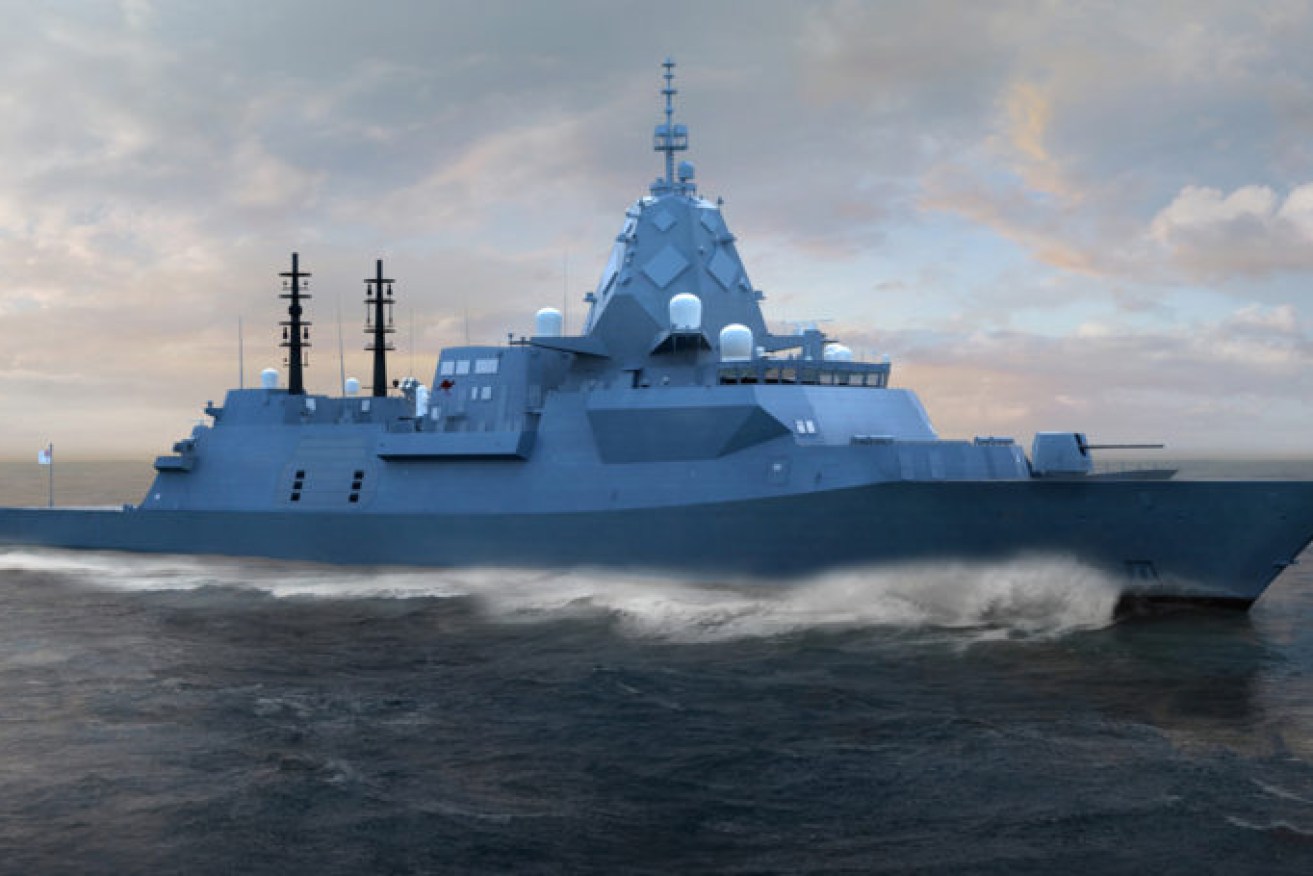Shipbuilding plan ‘seriously adrift’: Senate report
A Senate committee into Australia’s sovereign shipbuilding capability says the nation’s largest naval projects are “seriously adrift” and need urgent action to keep afloat.


The nine Hunter-class frigates are set to be built in Adelaide. Image: BAE Systems
In a report released yesterday, the Economics References Committee made six recommendations that include a public statement on the overall status of the Hunter-class Frigate project; the re-issuing of a revised Naval Shipbuilding Plan “at the earliest possible opportunity”, and; the establishment of a Joint Select Committee on AUKUS to examine in detail the progress of the nuclear submarines acquisition.
The committee includes Independent Senator for South Australia Rex Patrick and was originally chaired by SA Labor Senator Alex Gallacher until his death last year.
Its report, published this month and titled All at Sea, reviewed the progress of the three projects that comprise Australia’s Naval Shipbuilding Plan: the 12 Offshore Patrol Vessels, nine Hunter-class frigates and the Future submarines.
The committee said the Naval Shipbuilding Plan “is now seriously adrift—possibly even sunk”.
“The Attack-class submarines have been cancelled with their replacements yet to be decided. The Hunter-class frigates are in serious trouble, and it remains unclear if that project will proceed or, like the Attack-class, also be cancelled,” the report said.
“And while the Offshore Patrol Vessels (OPVs) is the best performing of the three classes that make up the Plan they, too, are now suffering delays—albeit manageable ones.”
The first two OPVs were built in SA at the Osborne Naval Shipyard with the remaining 10 being constructed in Western Australia.
Nine Hunter-class frigates are scheduled to be built at Osborne from this year but concerns have been raised that the surface ships will be slower and have a shorter range than initially planned.
“The Hunter-class acquisition is showing very similar problems to the Attack-class submarines,” the committee concluded in its report.
“Questions over the design chosen, the level of risk, optimistic program schedules and slipping timeframes have led to time and cost blow-outs.
“Like the Attack-class, there is a growing chorus of observers who, in some cases, are calling for a complete review of the program or, in other cases, are calling for the programme’s outright cancellation.
“The next Federal Government, regardless of political colour, should conduct a fundamental review of the Hunter-class frigate project and make a public statement on its status and what needs to be done to address its failings.”
The committee also said that the cancellation of the contract with Naval Group for 12 Attack-class submarines last year had cast doubt over the plan’s continuous build aspect, designed to avoid the ‘Valley of Death’.
“These boats were the backbone of the continuous build aspect of the Naval Shipbuilding Plan,” it said.
“Until the status of the AUKUS nuclear submarines and their build location is finalised there can be no way the committee can judge if a continuous build can be sustained, and the Naval Shipbuilding Plan can be continued, even in a modified form.”
However, a dissenting report from Coalition Senators said the Department of Defence should be given the opportunity to respond and provide detailed observations on a series of the issues raised.
“Coalition Senators support the Government’s commitment to a strong and sustainable shipbuilding pipeline in Australia,” the Government Senators concluded.
“The Coalition Government’s commitment to continuous naval shipbuilding will support at least 15,000 Australian jobs by the end of the decade.
“The Government has made significant and rapid progress in our trilateral effort with the US and UK to identify the optimal pathway for Australia to acquire a nuclear-powered submarine capability. There are no roadblocks.”
Patrick said national security was not an area for marketing slogans or shallow claims.
“This report is handed down in the final moments of an election campaign in which the Morrison Government has repeatedly tried to make claims that they are strong on defence and national security,” he wrote in additional remarks to the report.
“These claims are not substantiated by the actual outcomes.
“The slow progression of the various projects covered by this inquiry during a period of increasing international tension and shortened warning times, is a significant concern for Australia’s national security.
“The rising costs of delivering naval capabilities compared to other nations places unreasonable burden on the taxpayer and deprives the Australian Defence Force (ADF) of other much-needed ground, air and space capabilities.”




